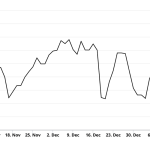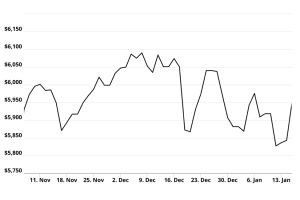
In the ever-changing world of stock markets, those looking for possible comeback tales sometimes find that cheap stocks provide fascinating chances. These stocks are industry heavyweights. They have experienced market difficulties lately but have much room to expand and recover. Those hoping to profit from cheap possibilities must comprehend the reasons behind these firms’ recent difficulties and their plans to overcome them. A company on the list has demonstrated exceptional endurance in a challenging retail market and has had a considerable rise in revenue.
Similarly, another has positioned itself for future profitability in healthcare services. That is by strategically concentrating on acquisitions and operational savings to offset revenue decreases. The last company on the list, however, has demonstrated its capacity to efficiently monetize its media assets by taking advantage of significant media events to generate significant growth in advertising income.
Overall, the emphasis here is on the same principles that support these businesses’ recovery strategies, explaining why the beaten-down stocks may be well-positioned for a revival.
Walgreens Boots Alliance (WBA)

The conglomerate Walgreens Boots Alliance (NASDAQ:WBA) is a global leader in retail pharmacy and healthcare services. Due to a challenging consumer environment, Walgreens reported disappointing earnings and lowered its full-year outlook, leading WBA stock to plummet over 20%.
However, Walgreens reported a 2.6% revenue increase to $36.4 billion in the third quarter of fiscal 2024. Hence, this expansion demonstrates Walgreens’s capacity to successfully manage challenging retail settings and seize opportunities in its pharmacy and healthcare offerings.
Additionally, Walgreens’ strategic moves in its pharmacy services have proven essential. The company’s dedication to improving profitability and customer engagement is reflected in its focus on growing its brand penetration by 65 basis points. Programs that improve operational efficiency complete over 80% of orders in less than an hour, enhancing consumer convenience and satisfaction. These online purchases with in-store pickup and same-day delivery may increase sales.
Overall, the company shows resilience through strategic expansions and sharp operations, making it a top mark on the beaten-down stocks list.
CVS Health (CVS)

CVS Health (NYSE:CVS) is a diversified healthcare services company. Strategic acquisitions such as Oak Street Health and Signify Health are anticipated to drive future expansion. With $29 billion in revenue, this category outperformed the previous year by 3% (Q1 2024). Higher prescription volumes and better medication purchase economics were the main drivers of the 4% improvement in adjusted operating income.
Additionally, the organization has integrated cost optimization activities throughout its operations to match expenses with business realities. That demonstrates a commitment to operational efficiency by utilizing business productivity programs and modifying workforce numbers to fit current volumes.
Further, despite the challenges, increasing margins across all its business sectors remain CVS Health’s primary goal. For example, initiatives in the Health Care Benefits segment are being made to alleviate Medicare Advantage margin constraints by implementing modifications to benefit design and pricing for 2025. CVS Health focuses on innovation in pharmacy services via several initiatives. Hence, these include the launch of CVS CostVantage and the marketing of biosimilars through Cordavis.
In summary, recent strategic acquisitions have placed it on the beaten-down stocks list, as it has the potential for growth by optimizing operations and expanding healthcare services.
Paramount (PARA)

Paramount (NASDAQ:PARA) operates in the media and entertainment industry. The firm reported a 6% rise in overall revenue to $7.7 billion in Q1 2024. Strong results across all its business categories contributed to this gain, with the TV media sector contributing $5.2 billion. That was up 1% despite affiliate and subscription income difficulties, which fell by 3%. Nonetheless, Super Bowl LVIII added 23 percentage points to the growth rate. This helped boost TV Media’s advertising income, which increased by 14%. Hence, the result demonstrated how well Paramount monetizes its media assets and how important athletic events are for generating ad income.
Moreover, in the Direct-to-Consumer (D2C) segment, Paramount attained a solid annual revenue growth of 24%. A substantial 51% rise in Paramount+ revenue drove a 22% increase in subscription revenue. The quarter saw the acquisition of 3.7 million new members, which increased the company’s global streaming service subscriber base to 71.2 million. Additionally, advertising income at Paramount+ increased by a significant 31%.
Finally, despite affiliate and subscription revenue challenges, Paramount’s focus on strategic media monetization and subscriber growth positions it as a recovery candidate among beaten-down stocks.
As of this writing, Yiannis Zourmpanos held long positions in WBA, CVS and PARA. The opinions expressed in this article are those of the writer, subject to the InvestorPlace.com Publishing Guidelines.





